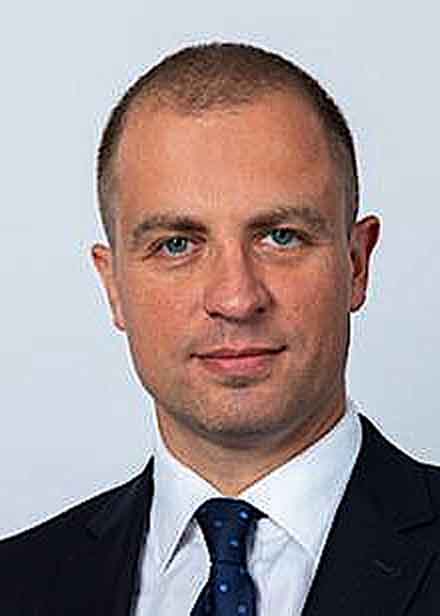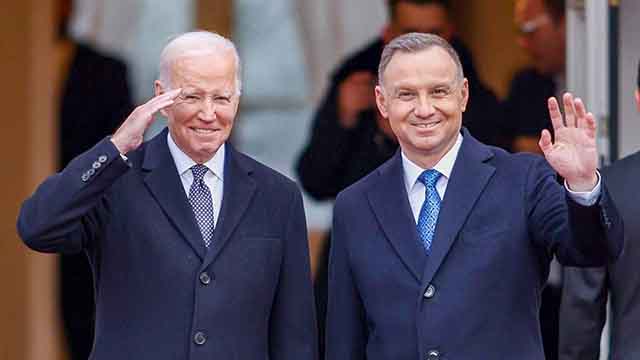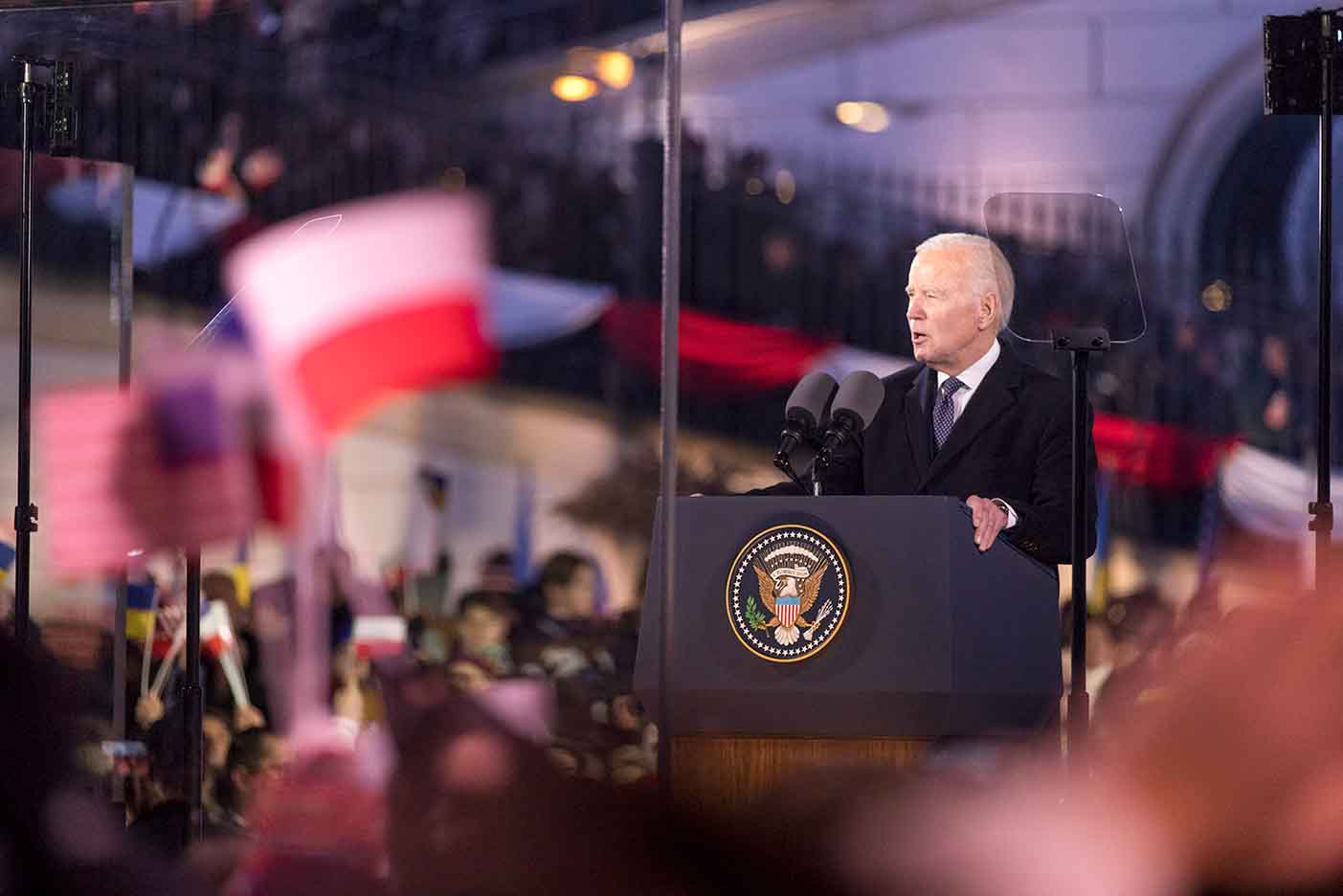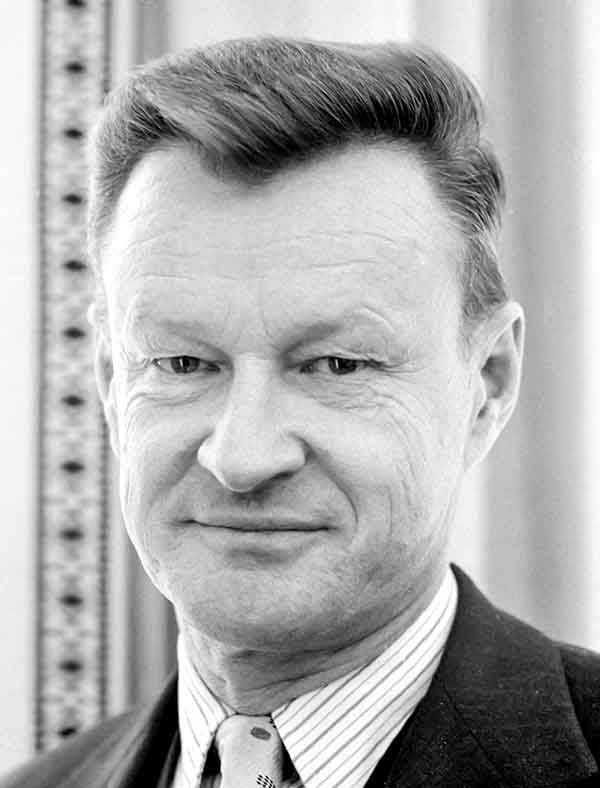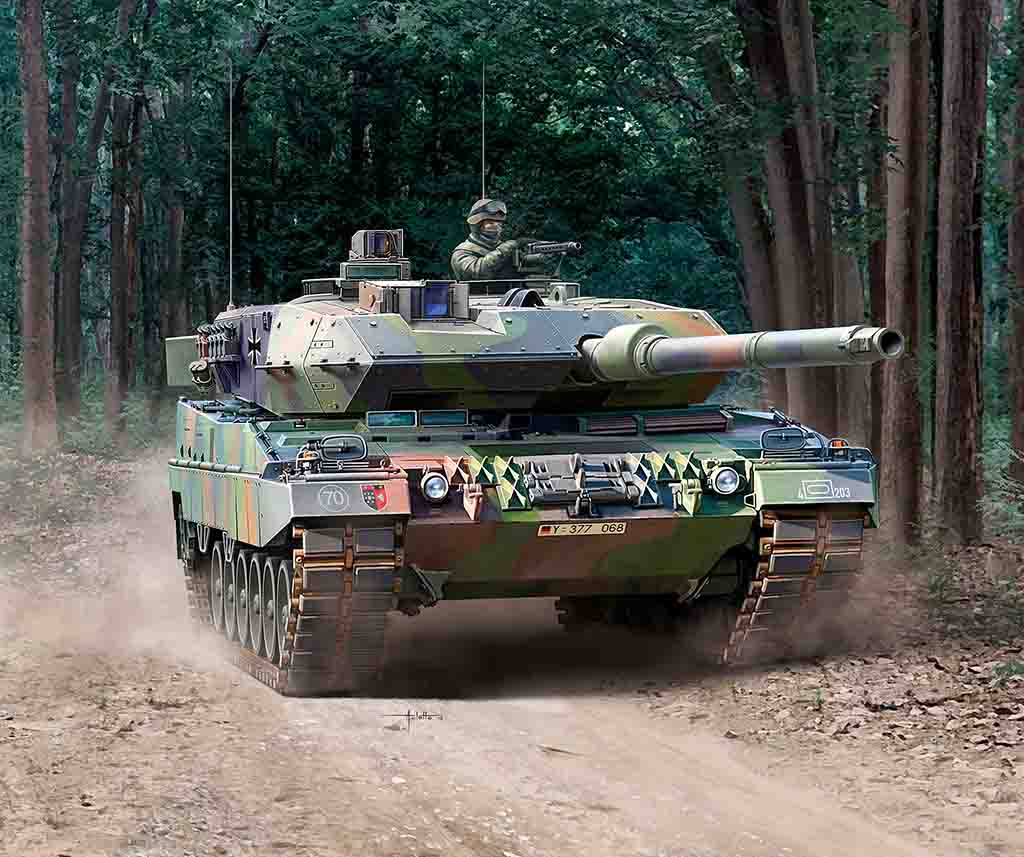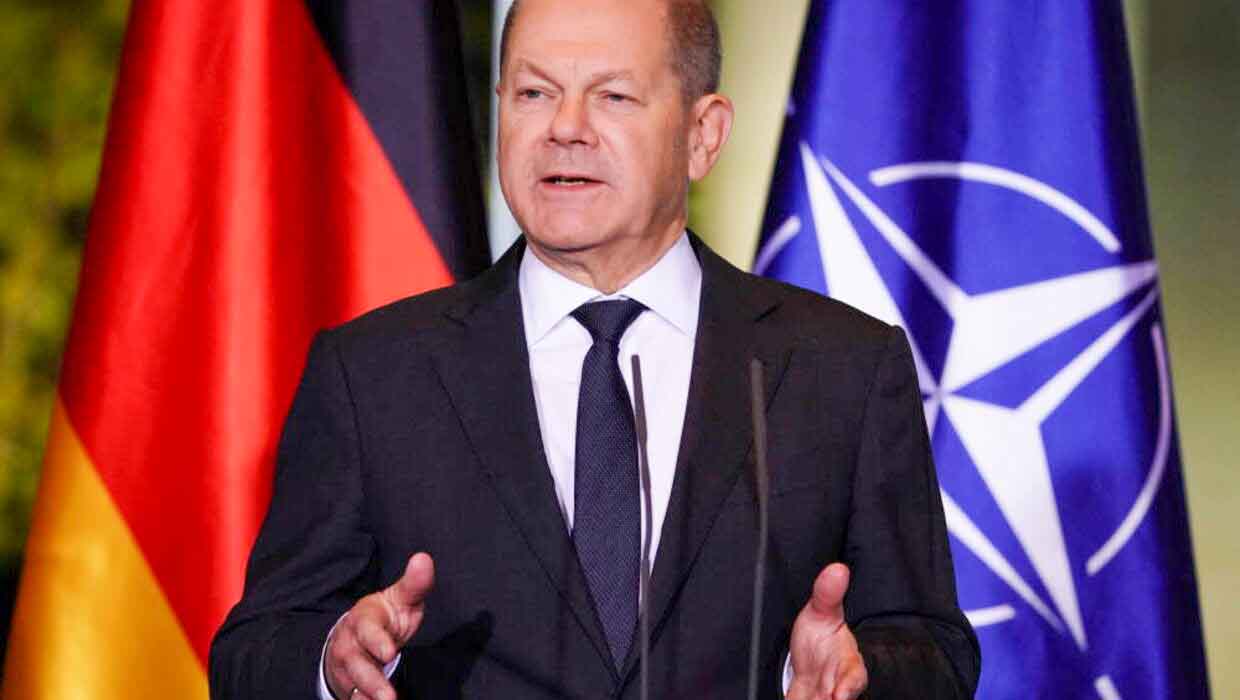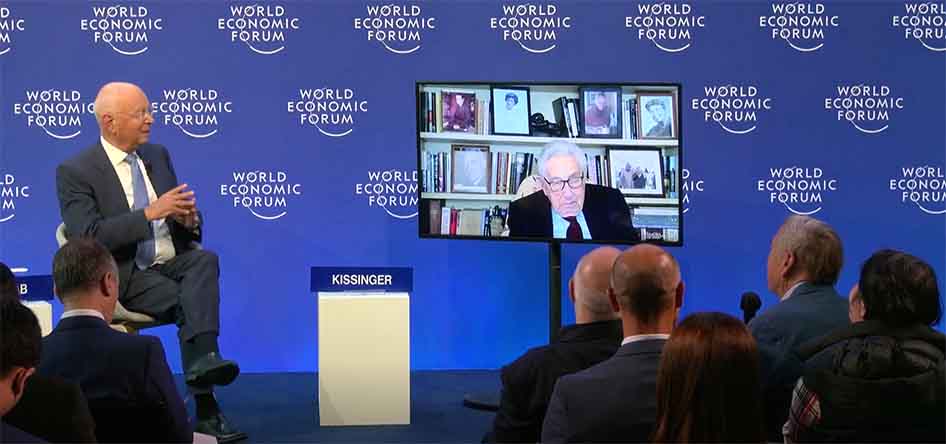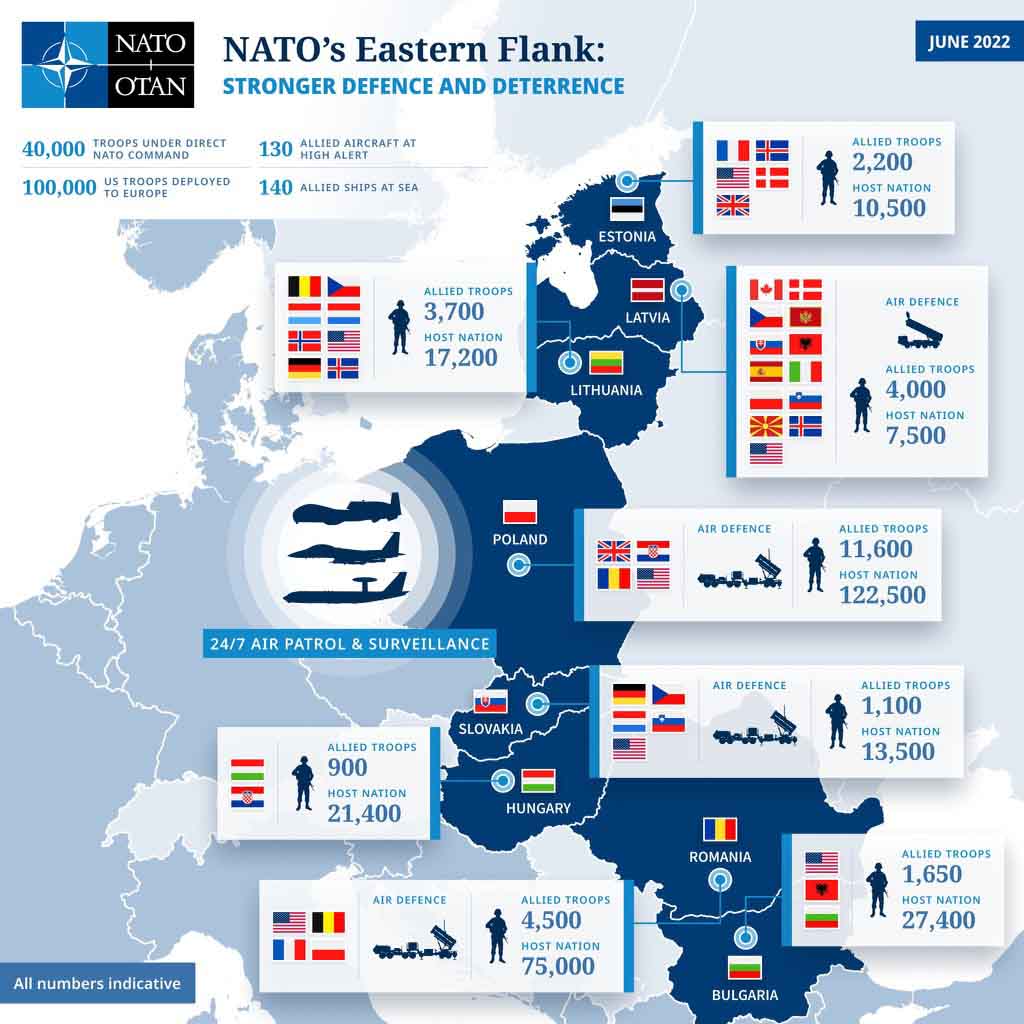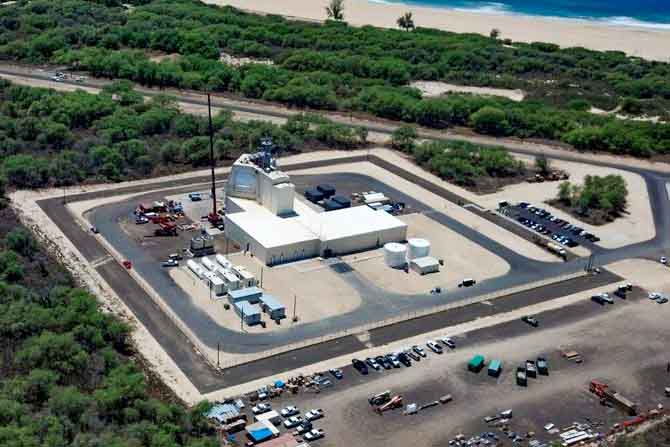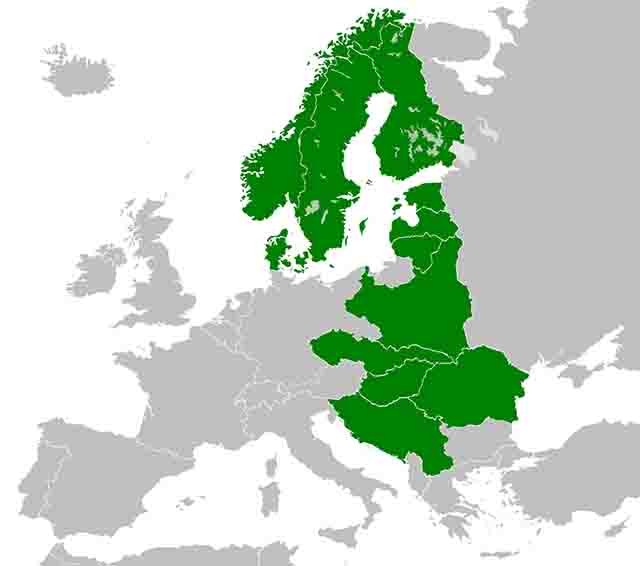The military weakening of Russia means that the likelihood of dangerous scenarios for Poland has decreased. However, the 'breathing' moment resulting from this state of affairs is not so much an opportunity to loosen efforts to enhance Poland's security as it is a time to make the most of this enhancement. The challenge for Poland is no longer what security guarantees we can obtain, but what position we will negotiate in NATO, including in its command structures, as part of our enormous contribution to the military security of the Alliance's states in Central and Eastern Europe. There is also the question of whether Poland is currently safe and what this safety depends on.
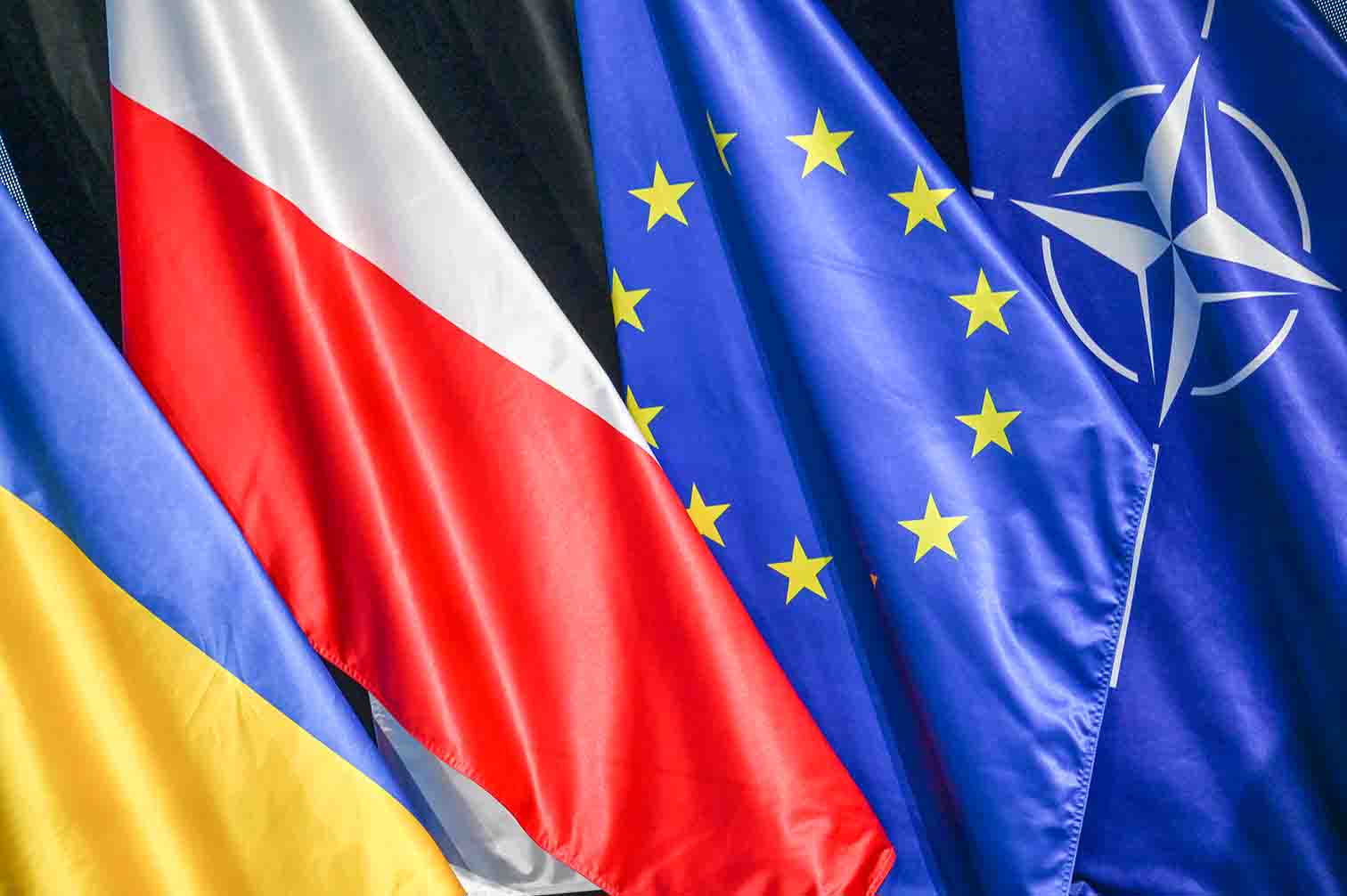
Flags of Ukraine, Poland and NATO (Photo: Aleksiej Witwicki/Forum, Source: DlaPolonii.pl)
Poland's security is linked to two interrelated factors. The first is membership in the North Atlantic Alliance, and the other more important is its capability. In 1999, when Poland joined the North Atlantic Alliance, its importance was primarily due to its geopolitical location. This was accompanied at the same time by the awareness that Poland was a security recipient within the community. Recent years and especially months have shown that this thinking is changing significantly.
This change is primarily due to Poland's growing importance at the military level. Let us note that we are witnessing the implementation of the largest programme for strengthening the Polish army since 1989. This is compounded by the fact that modernisation and change are characterised by a certain continuity in the implementation of the concept, as the solutions adopted by the Polish state after the 2017 Strategic Defence Review and later in the National Security Strategy are being expanded and implemented in 2022 in the package of radical strengthening of the Polish Army implemented by the Ministry of Defence. This concerns its quantitative development but above all the strengthening of artillery, logistics, ammunition facilities, long-range missile capabilities, air defence and anti-tank and reconnaissance capabilities.
Another factor is our contribution to building security within NATO. Suffice it to mention Baltic Air Policing, as part of which four of our F-16 fighter jets, with 150 personnel, patrol the airspace over the Baltic States. There are 300 Polish soldiers present in Kosovo and Romania, 260 in Latvia, and in Turkey, a Polish Bryza aircraft conducts patrol operations on the Syrian-Turkish border. Polish fighter jets will soon appear in Slovakia, where they will also patrol the airspace. As part of the Standing NATO Maritime Group One, the Polish Military Contingent 'Kosciuszko' of around 200 soldiers will appear in the Baltic, Norwegian, North and Mediterranean Seas and the eastern part of the Atlantic.
The increase in importance at the political level is not only due to our determination, constancy and courage in taking decisions to increase defence capabilities. Poland's activity before the outbreak of the crisis, and later its determination and role in helping Ukraine, as well as its effectiveness in pushing for a tough sanctions’ response towards Russia, positively influenced our country's image and importance. This is reflected in the many visits and conversation formats of President Andrzej Duda, the international activity of Prime Minister Mateusz Morawiecki, Deputy Prime Minister Mariusz Blaszczak, and Foreign Minister Zbigniew Rau.
Poland's role as the keystone of the eastern flank was confirmed by the key American presence and the dislocation of the Alliance's strategic command capabilities. At the NATO Madrid Summit, it was decided to place the most important US tactical command in Europe on the territory of the Republic of Poland. The V Corps Command is, from the point of view of the command of US troops in Europe, the most important place, as it is here that the most important commanders of the US Army will appear in a critical situation. This will entail, downstream, increased reconnaissance capabilities, a stronger air presence, expanded infrastructure for more troops and stored equipment, and increased fuel infrastructure on Polish soil.
In this context, it is worth noting another important factor, i.e. the nature of the presence of allied troops. From a strategic and deterrence potential point of view, the possibly permanent presence of these troops is of greater importance, as it shows that Poland cannot be removed from this zone in the long term. However, there is no doubt that the presence of US troops in Poland was already permanent and long-term before this decision, as expressed in the declaration signed by the presidents of Poland and the United States in 2019.
An important testimony to Poland's importance in the NATO arena is, moreover, the significant change in tone evident in the Strategic Concept. The wording contained therein states that NATO will prevent the adversary from creating accomplished facts, which is a significant change given the reactive nature of the Alliance emphasized until now.
Therefore, taking into account the presence of our allies' forces in Poland and the potential of our country, the fact that Ukraine is successfully defending its sovereignty, and how great Russian losses in equipment and people are — it can be concluded that the risk of conventional Russian aggression that would threaten Polish sovereignty has significantly decreased.
Thanks to the increase in Poland's defence potential, undermining Polish sovereignty with such an attack will be simply impossible also from a perspective of a few years. Ensuring Poland's security, however, does not offset the other challenges we face as an important member of NATO.
We need to stop thinking of ourselves solely in terms of a recipient of security because we are increasingly a provider of it, whereas such thinking still characterizes the approach of some of our allies.
At the same time, in the international arena, we must pay attention to how strongly we are developing our capabilities, as evidenced, for example, by the programme to expand the armed forces. As a consequence, Poland is ceasing to be important only because of its geographical location and is becoming a key player on NATO's eastern flank. The most important change is already taking place at the psychological level in the consciousness of other allies. We must ensure that this is reflected in the provisions of the next Alliance summit.
Poland must also exert a significant influence on the shape of NATO's future relations with the new Russia, which we will build once Russia has fulfilled the conditions necessary to rebuild the transatlantic security order. The current document, the NATO-Russia Founding Act, is a formula that creates a second category of members within the pact. This is dangerous as it cannot exclude the scenario that not only Russia but also some Western states could care about keeping Poland in a status of certain dependence in the field of security. However, Poland, together with other allies, is communicating within NATO that since Russia has walked away from this act, it no longer applies to us. Nevertheless, it is still being debated, although it should be noted that at the Madrid summit the allies agreed that some of the restrictions under the Act no longer apply.
Another challenge is to change the model of the support we provide to other allies on the eastern flank. Diversifying our presence beyond Poland's borders distorts the assessment of the scale of our engagement. This could be changed by consolidating our presence in a way that allows us as a framework state to take command in certain areas where NATO provides security. This is currently under discussion.
A very important thing, both for NATO and Poland, is the prospect of reforming command structures as a result of the changed geostrategic situation and adapting to lead a new pool of forces. Poland wants to take its rightful place in this reform, and we believe that our growing potential fully justifies it. Therefore, our role is to give the changes the right direction, resulting in the adaptation of military structures. We will oversee the planning of the 300,000 NATO force pool to be available in a collective defence situation. Parallel to this goes the development of operational planning.
The issue of security resulting from Poland's presence in NATO is now entering a dimension in which we are becoming its essential guarantor in this part of Europe. This fact, which fundamentally affects the evolution of our position in the North Atlantic Alliance, affects our security at the same time. The question of how crucial our contribution to NATO will be is also a question of how much we will take care to develop our military potential.
The challenge for Poland is no longer what security guarantees we can obtain, but what position in NATO command structures we will negotiate as part of our huge contribution to the military security of the Alliance countries in Central and Eastern Europe. The next NATO summit will be an important milestone in this regard.
Ultimately, the question of Poland's security cannot be answered without addressing the challenges of the North Atlantic Alliance as a whole. One of the biggest challenges for NATO will be to arrange a new relationship with Ukraine, including an approach to the Bucharest summit promise to make the country a NATO member. Russia is trying to influence NATO's open-door policy through military aggression, and this is also happening in Georgia. As Poland's ambassador to NATO, I can assure you that we will strive to prevent this kind of policy from paying off and bearing fruit.



